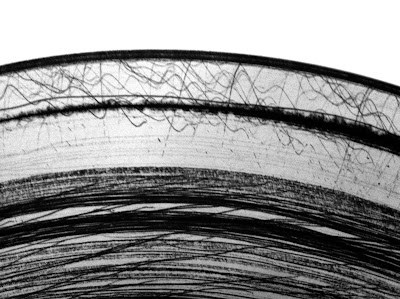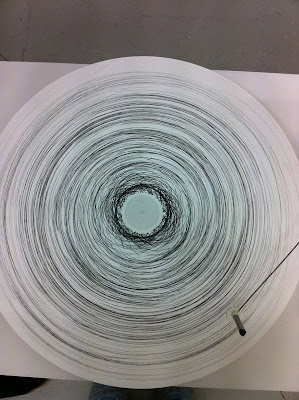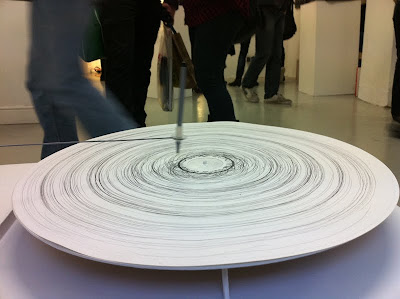This is indeed a fascinating experiment in the Nature of creativity and the "randomness" that may or may not be found in a computer simulation of the creative act. One aspect of this that I find particularly interesting is (again) the exclusion of emotion in all aspects of computer simulation. No “creative” endeavor undertaken by a computer can, by its very nature, be described as Art; because there is that fundamental absence of theURGE to create. I think all art stems from either the irresistible urge to make your mark or the conscious decision to produce a piece of work that stuns, informs, shocks, educates or attempts to present aspects of the world and Man’s experience within it, in a new and enlightened way. A computer simply cannot feel such an urge; it will always mechanically reproduce its programmer’s ideas. Even if it is a computer of unimaginable complexity, capable of generating billions of random actions and marks per-millisecond, the ultimate spark that begins this chain of randomness will always stem from an outside (organic) thought process instilled by the human creator. A computer can create an ocean of complexity, but the spark that ignites that “Big Bang” of complexity will always be lit by the hand of Man.
Jackson Pollock underwent months of tortured thought and experimentation before alighting on his “drip” paintings and effectively forming Abstract Expressionism. Van Gogh, as you know, was so consumed with his art and his attempts to represent the world around him in paint, that he ultimately took his own life. I cannot foresee an age in which a computer will experience an emotional breakdown brought on by its inability to create a perfect sunflower; or one where an extremely complex mechanism destroys itself because it cannot adequately represent its thoughts in images. Can you imagine a robot that, consumed with jealousy, assassinates another robot and steals its work to claim it as its own? Jean Arp told the story of how, in 1915, when he was notified to report to the German consulate, he avoided being drafted into the army. He took the paperwork he had been given and, in the first blank, he wrote the date. He then wrote the date in every other space as well, and then he drew a line beneath them and carefully added them up. He then took off all his clothes and went to hand in his paperwork. He was told to go home. I cannot ever comprehend a computer thinking up such an act as this. This was randomness with a purpose, a complex act of subversion that at once attempted to show unbridled madness, but at the same time also displayed devious logic inasmuch as it successfully enabled Arp to avoid the military Draft.
Martin Greaves







